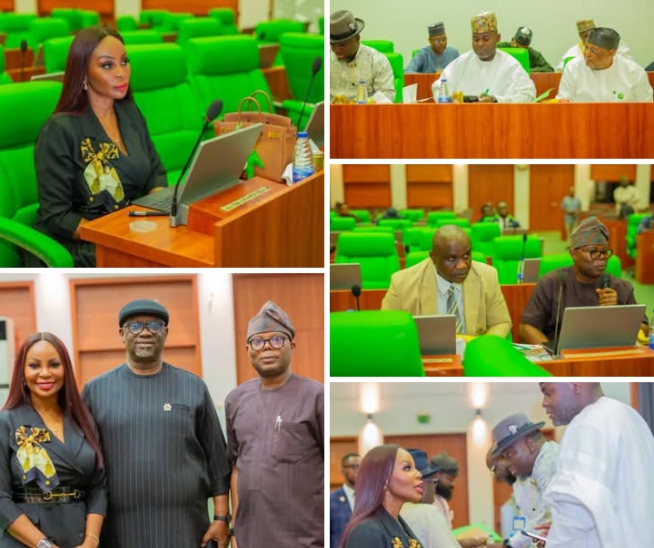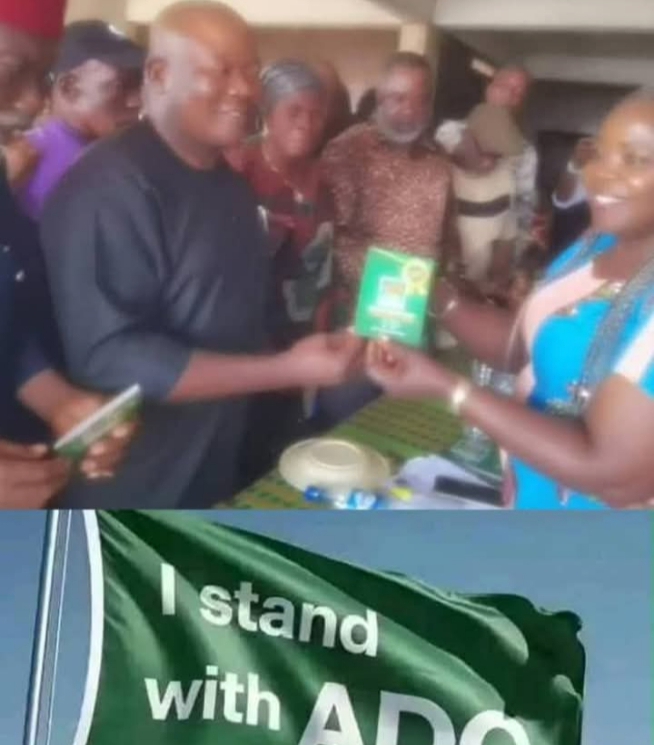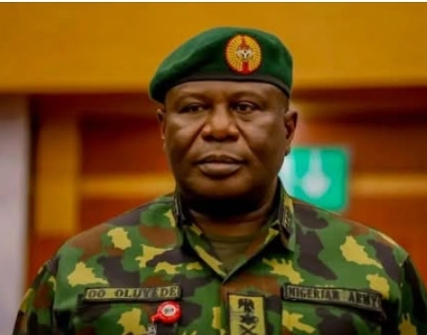…Stakeholders Call for Transparent Management of Petroleum Industry Act’s Abandonment and Decommissioning Allocations to Restore South-South Ecosystem
The South-South Development Commission (SSDC) has reiterated its firm dedication to enforcing the Abandonment, Decommissioning, and Environmental Remediation Funds (A&D/ERF) set up under the Petroleum Industry Act (PIA) of 2021. The commission emphasised that this effort represents both a legal requirement and a moral imperative to rehabilitate the environment across the South-South region.
At a meeting held on Thursday at the National Assembly Complex in Abuja, the Managing Director and Chief Executive Officer of SSDC, Ms. Usoro Akpabio, joined forces with Hon. Julius Pondi, Chairman of the House of Representatives Committee on SSDC, alongside other key stakeholders. The session focused on tackling the ongoing failure to implement the environmental and decommissioning funds stipulated by the PIA.
Ms. Akpabio praised the Committee’s active oversight role and highlighted the environmental challenges faced by the South-South — Nigeria’s core oil-producing zone — which has suffered extensive ecological damage despite its crucial contribution to the country’s economy. She outlined that the SSDC, inaugurated by legislation in 2025, holds a clear legal mandate to oversee sustainable development, environmental safeguard, and remediation across the six states in the region.
Referring to the Commission’s founding statute, she explained that Sections 8(1)(h) and 9(1)(f) of the South-South Development Commission Act, 2025, empower the SSDC to design and execute environmental protection initiatives. The Commission is mandated to cooperate with regulatory bodies including the Nigerian Upstream Petroleum Regulatory Commission (NUPRC), the Nigerian Midstream and Downstream Petroleum Regulatory Authority (NMDPRA), the National Oil Spill Detection and Response Agency (NOSDRA), and the Federal Ministry of Environment for coordinated environmental governance.
Ms. Akpabio stressed that the legal provisions within both the SSDC Act and the Petroleum Industry Act confirm the necessity of embedding the SSDC as a statutory participant in managing the Abandonment, Decommissioning, and Environmental Remediation Funds.
Despite explicit clauses in Sections 232 to 242 and 103 to 104 of the PIA requiring oil firms to allocate resources for decommissioning and ecological cleanup, there remains no public proof of active escrow accounts, fund deposits, or disbursements since the Act’s commencement. This reflects institutional disjointedness, inadequate regulatory coordination, and the SSDC’s exclusion from fund management, despite its regional jurisdiction and community involvement capabilities.
Highlighting the consequences of such neglect, Ms. Akpabio reported more than 2,000 spill sites within the region, significant destruction of mangrove habitats, the collapse of livelihoods in fishing and farming communities, and escalating public health threats. She warned that continued inaction risks violating the PIA’s objectives, the Federal Government’s Renewed Hope Agenda, and Nigeria’s Energy Transition Plan (ETP 2060).
To close these gaps, SSDC proposed a collaborative framework involving NUPRC, NMDPRA, and the SSDC, creating a dedicated “South-South Window” within the A&D and ERF structures. Ms. Akpabio suggested formalising this partnership via a memorandum of understanding within three months, empowering the SSDC to coordinate regional remediation programmes, oversee transparent fund allocation, and align environmental restoration with local development priorities.
She also advocated for the establishment of ring-fenced escrow sub-accounts at the Central Bank of Nigeria specific to South-South assets, the launch of a Public Environmental Accountability Dashboard for real-time transparency, and blending remediation finance with Green Bonds, ESG investments, and support from international entities like UNEP, UNDP, the World Bank, and AfDB.
Ms. Akpabio underlined that effective rehabilitation in the Niger Delta corresponds with global sustainability goals, notably the United Nations SDGs 6, 13, 14, and 15, positioning environmental renewal as a key element of climate justice. She called on the Federal Government to champion an International Donor Compact to support rehabilitation efforts.
“The activation of the Abandonment, Decommissioning, and Environmental Remediation Funds is more than just a statutory duty; it is a moral obligation to restore the dignity, health, and livelihoods of the communities that have underpinned Nigeria’s energy wealth over generations,” Ms. Akpabio asserted.
She reaffirmed the SSDC’s readiness to work alongside all relevant authorities, the National Assembly, and global partners to ensure that Nigeria’s petroleum future is shaped by restoration, inclusivity, and renewal rather than pollution and neglect.



